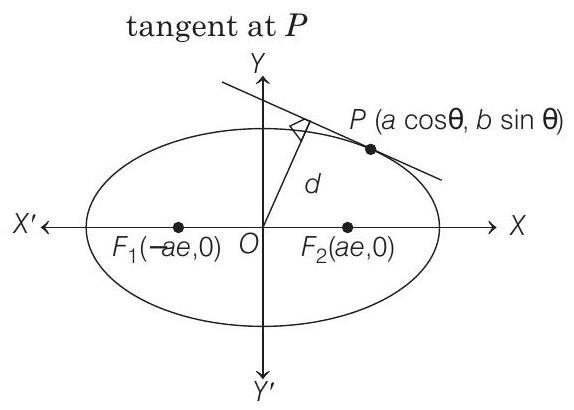Ellipse 2 Question 22
22. Let
Integer Type Question
Show Answer
Answer:
Correct Answer: 22. (b)
Solution:
- Let the coordinates of point
Then, equation of tangent at
We have,

We have to prove
Now,
Again,
Similarly,
Therefore,
Hence,






